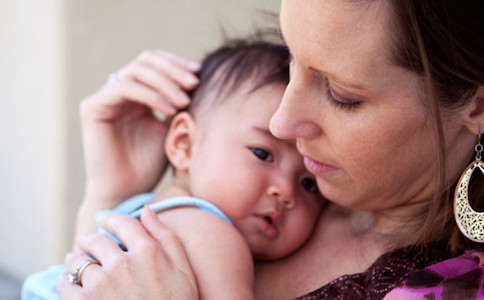
By Christiane Manzella, PhD, FT, clinical director of the Seleni Institute, a nonprofit mental health and wellness center for women and mothers in New York City.
Up to 20 percent of childbearing women will experience a perinatal mood or anxiety disorder (PMAD), such as postpartum depression. A quarter of pregnancies end in miscarriage, and half of women who lose a pregnancy to miscarriage experience anxiety in subsequent pregnancies. Also, the risk of a mood disorder increases sharply for women who experience more than one miscarriage or suffer a stillbirth (which occurs in 1 out of every 160 pregnancies).
It's critical to talk about these difficult statistics so we can support women appropriately, which is paramount to supporting the health of families. But women in their childbearing years face psychological issues that most mental health professionals are unprepared to address because few graduate programs in mental health counseling cover these common and treatable conditions.
It's time for graduate programs everywhere to focus on reproductive and maternal mental health. That way, women can feel secure knowing that their experiences will be understood, addressed, and adequately treated, and professionals will be prepared to help women coping with a PMAD.
Even though most mental health professionals are very likely to see women in their practice with these issues on a regular basis, there is no requirement that perinatal mood and anxiety disorders -- or other issues related to pregnancy and parenting -- be covered in academic curricula. As Wendy Davis, the president of Postpartum Support International puts it, "it's a rare university that provides adequate education about perinatal mental health."
But they must. Women with untreated PMADs are at greater risk of developing chronic depression and of abusing substances, putting both their health and their children's health at risk. And children born to women with postpartum depression and other PMADs have a greater chance of experiencing significant emotional and cognitive difficulties as they grow.
Innovative programs around the country are paving the way: The Sexuality, Women, & Gender Project at Teachers College, Columbia University will soon offer a program in reproductive and maternal well-being, and there are also postgraduate programs for mental health professionals to get the specialized training they never received.
But more can still be done. Clinicians need the tools to recognize perinatal mood and anxiety disorders in any situation. We must continue to advocate for and innovate adequate training for mental health providers to make sure women get the professional support they need and deserve to begin motherhood with strength and health.
This article was originally published on the Seleni Institute website and is reprinted here with permission. Seleni is a nonprofit mental health and wellness center providing clinical services, research funding, and online information and support for women and mothers.